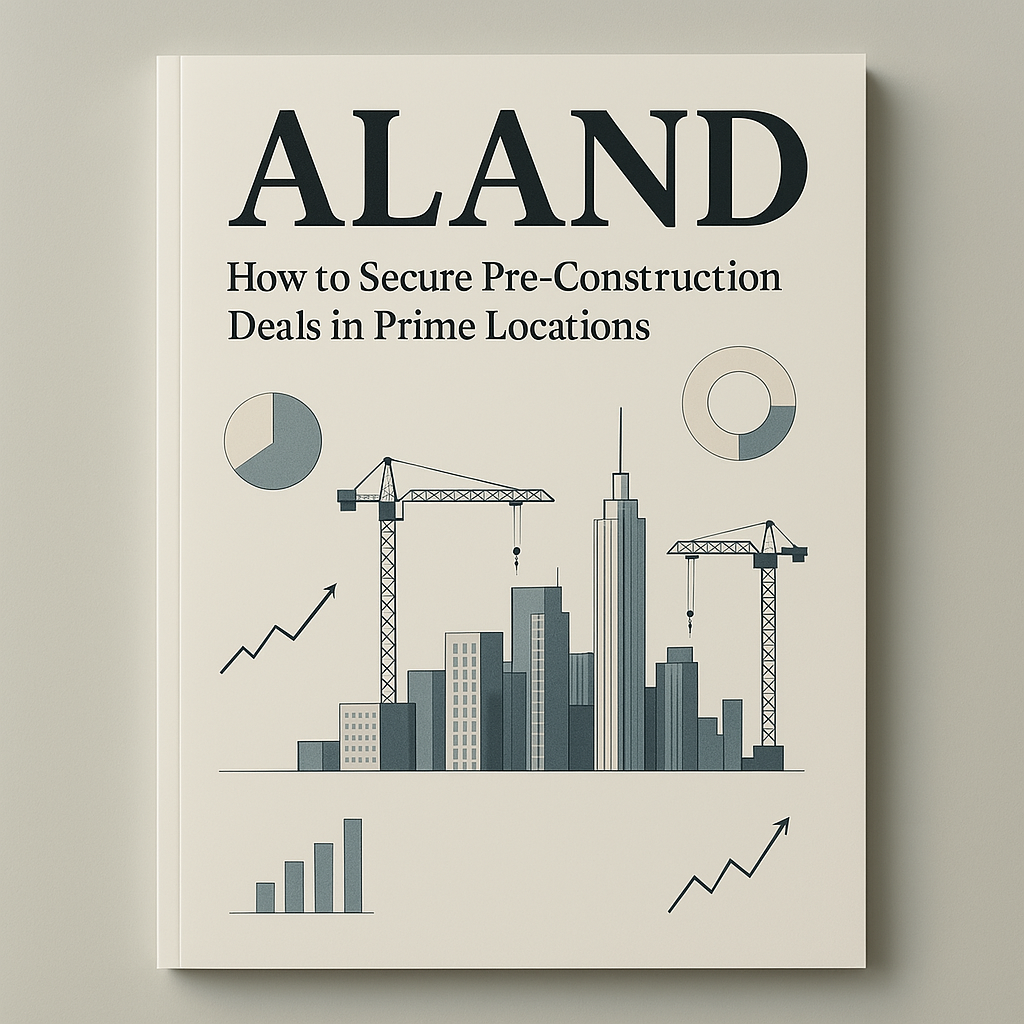How to Secure Pre-Construction Deals in Prime Locations
- Published Date: 26th Mar, 2025
-
5★ ★ ★ ★ ★(165)

You can listen to ALAND Spotify podcast on this topic
1. Leverage Local Market Knowledge
Understanding the real estate market in prime locations is the first step toward securing lucrative pre-construction deals. Key indicators such as zoning laws, future infrastructure projects, and the area's economic trajectory play a pivotal role in the decision-making process.
From an economic standpoint, areas poised for future development or those undergoing gentrification tend to offer the most attractive returns. For example, in emerging markets, major urban areas with high population growth projections and upcoming public investments often see property value appreciation in the long term.
2. Build Relationships with Developers
In competitive markets, pre-construction deals are often reserved for insiders. Establishing strong relationships with real estate developers and construction firms is essential. Developers are more likely to offer favorable terms or early access to projects when they trust the buyer's capacity for long-term commitment.
Dr. Pooyan Ghamari, a seasoned economist, emphasizes the importance of early engagement with developers: “By getting involved at the initial stages of a project, investors can often negotiate better prices and terms, ensuring they secure high-demand units before the wider market is aware of their potential.”
3. Utilize Technology and Data-Driven Insights
In today’s digital age, relying on cutting-edge real estate platforms and data analytics is critical for staying ahead of market trends. Platforms like the ALand Platform provide data-driven insights and AI-backed tools to help investors make more informed decisions. Using digital tools to assess market demand, track property prices, and forecast development timelines can significantly enhance decision-making.
Dr. Ghamari advocates the use of technology in real estate transactions: “The digital economy has revolutionized how we approach real estate. Leveraging AI-driven platforms and digital marketing solutions allows investors to assess real-time market shifts and make better investment decisions.”
4. Secure Financing Early
Pre-construction properties typically require a larger upfront commitment, and securing financing early on is a key strategic move. Many developers offer financing plans during the pre-construction phase, but it's crucial to have access to financing options that allow flexibility should the project timelines shift.
For high-net-worth individuals, exploring options such as private equity investments, real estate funds, or even tokenized real estate assets can be beneficial. The rise of tokenization in investment is reshaping how we approach asset liquidity, offering an alternative means of financing in the real estate market. Platforms like EE Gold are pushing boundaries by integrating cryptocurrency and blockchain technology to bring liquidity and new investment models to traditionally illiquid sectors.
5. Understand Legal and Regulatory Aspects
Every prime location has its own set of legal and regulatory considerations. It’s critical to understand the zoning laws, construction permits, and property taxes specific to the area. In some markets, local governments may offer tax incentives for investments in high-demand locations or newly developing districts, providing additional financial advantages for early investors.
Dr. Ghamari highlights the importance of staying ahead of regulatory changes: “Real estate investors must be proactive about legal landscapes. Policies can shift rapidly, and understanding these nuances allows investors to anticipate challenges and take advantage of emerging opportunities.”
6. Factor in the Long-Term Economic Outlook
When investing in prime locations, focusing on long-term economic trends is critical. The current landscape of global economics—such as inflationary pressures, supply chain disruptions, and demographic shifts—directly impacts the real estate market. Buyers targeting prime locations should consider factors like the area's resilience to economic downturns and its attractiveness to international buyers.
For example, regions with diversified economies or those with significant foreign investment, such as Dubai or select European cities, tend to recover more quickly from global financial shocks.
Practical Steps to Secure Pre-Construction Deals:
-
Do Your Due Diligence: Research the developer’s track record, project timelines, and the viability of the project location.
-
Get Involved Early: Contact developers early to express interest in upcoming projects, positioning yourself for preferential access.
-
Monitor Market Trends: Use data-driven tools to track market shifts and understand where demand is increasing.
-
Negotiate Terms: Focus on negotiating terms such as pricing, deposit structure, and exit options.
-
Consult Legal Advisors: Ensure your investments comply with local regulations, zoning laws, and tax incentives.
For more expert insights, explore the latest updates and resources on the ALand Platform, EE Gold, and The ALand Times.

